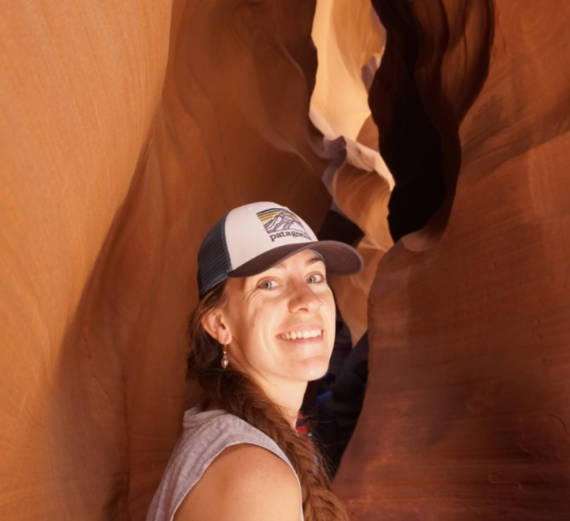Sustainability Q&A with Kelsey Solberg

What is your position and department at Gonzaga?
Program & Project Specialist in the School of Leadership Studies. Current student in the M.A. in Organizational Leadership program with an anticipated graduation date of May 2021!
What does sustainability mean to you?
I believe sustainability to be the practices and values that support the creation and continuation of all life on this planet. I also understand it to be iterative, always in process and never quite achieved.
How have you been involved in promoting sustainability on campus?
I had the honor of participating in the pilot Employee Sustainability Ambassador program in 2018, and am also a stakeholder for the Gonzaga Sustainable Energy club on campus.
What are some things you do in your personal life to live sustainably?
I believe that issues of environmental sustainability must be addressed at the systemic level and that individual practices are only a drop in the bucket. This is no reason to completely disengage on a personal level, however, so there are a few ways that I try to reduce my impact! I avoid single-use items as much as possible, walk or ride my bike when feasible, shop used gear and clothing, and subscribe to a pescatarian diet. I also sit on the board for a local organization, River City Youth Ops, whose urban farm-to-market programming seeks to educate and empower youth to be agents of change within their local communities. With industrial agriculture being one of the major levers to pull in the fight against climate change, I find that connecting youth with small-scale agriculture and empowering them to grow their own food provides a hopeful landscape for the future.
How could Gonzaga continue to improve its sustainability efforts?
I think Gonzaga does beautiful work in the space of sustainability! There are a number of programs and resources for students, as well as staff and faculty, to learn about and engage in different aspects of sustainability topics and projects. Putting more resources (additional staff, especially) towards these efforts would increase the capacity and build upon the work that’s already being done. There is momentum and creativity, and we just need more hands to carry it forward!
How will you continue to promote sustainability at Gonzaga?
I will continue to recommend Sustainability Ambassador programs, as well as the many educational and engagement opportunities available, to both colleagues and students. In all honestly, I would really like to become more meaningfully involved in the sustainability efforts at Gonzaga. Leadership Studies lends itself well to the work being done in this space, and being that many of the programs in the School of Leadership Studies are hybrid graduate programs, we also have a unique opportunity to connect Gonzaga’s sustainability efforts to organizational leaders throughout the country and world. I don’t feel that I have been active in creating these connections and hope to change that going forward!
How do you see sustainability intersecting with social justice issues on an institutional, country, or global scale?
In so many ways! I truly feel hard pressed to find a social justice issue that is not tied to environmentalism. Colonialism laid the groundwork for the environmental crisis and continues to perpetuate it with an extractive, consumptive, individualistic approach. Poor communities and communities of color are disproportionately impacted by poor air quality, often living in areas near commercial facilities that produce noise, odor, traffic or pollutants. Climate-caused natural disasters also impact certain communities more than others, both in terms of occurrence and aid received, with those distinctions often being drawn on socio-economic and/or racial lines. In thinking about the ongoing response to climate change at the local, national and global level, we also need to diversify the demographics of those at the table making decisions. This brings a number of social justice movements into the fold, working on behalf of women, LGBTQ+, BIPOC and all other historically marginalized groups. I believe that the current moment is critical, both for avoiding climate catastrophe, and also for seizing an opportunity to completely rethink our systems and lifestyles. Considering all these intersections has the potential to level opportunity and wealth, and provide a much more peaceful, just and sustainable planet *steps down from soap box*.
